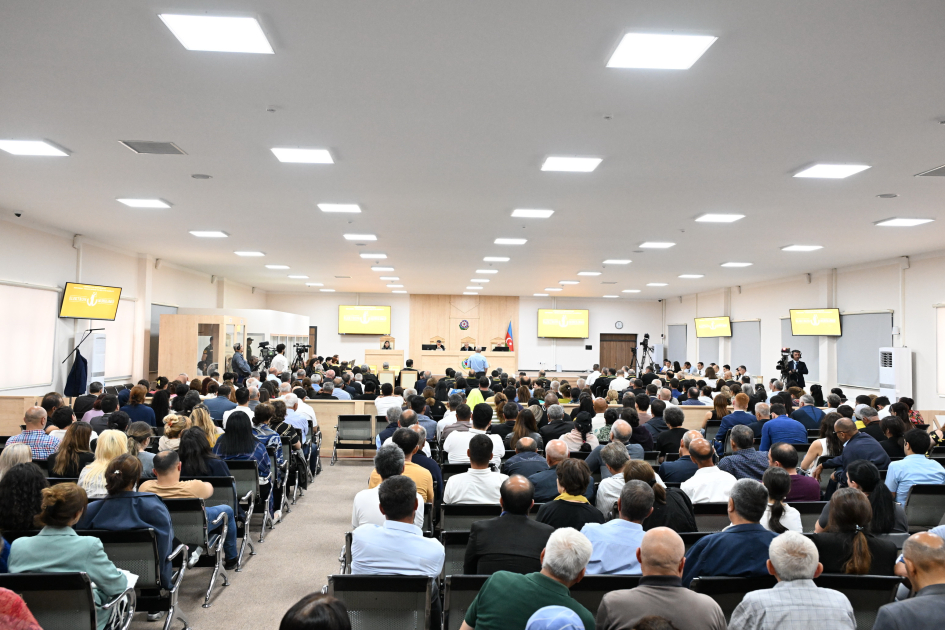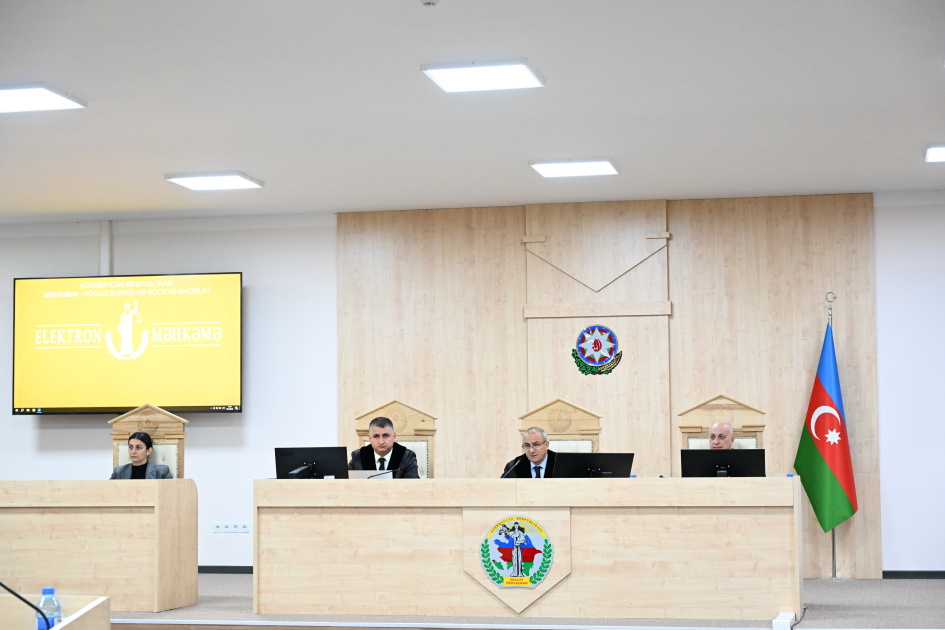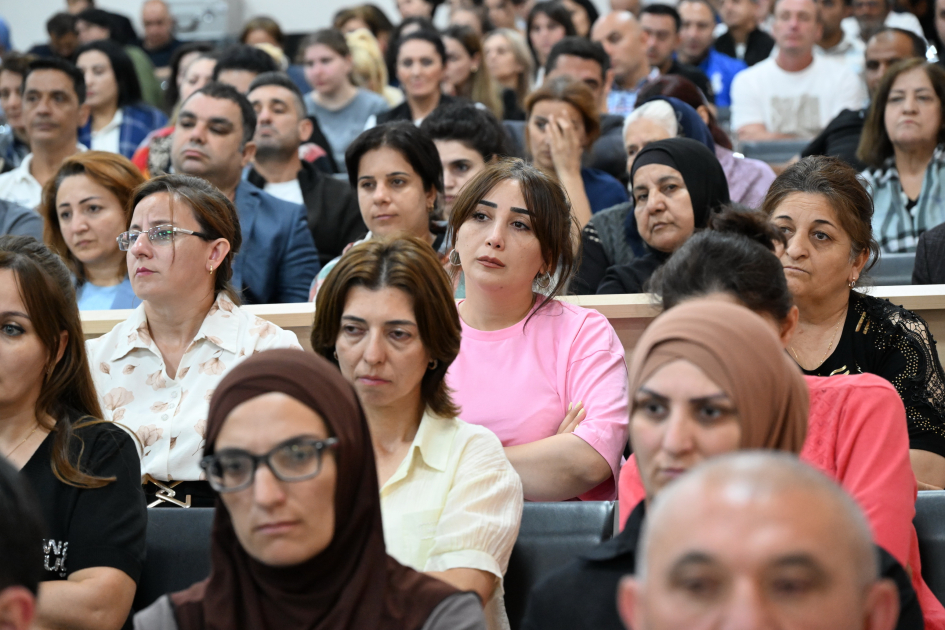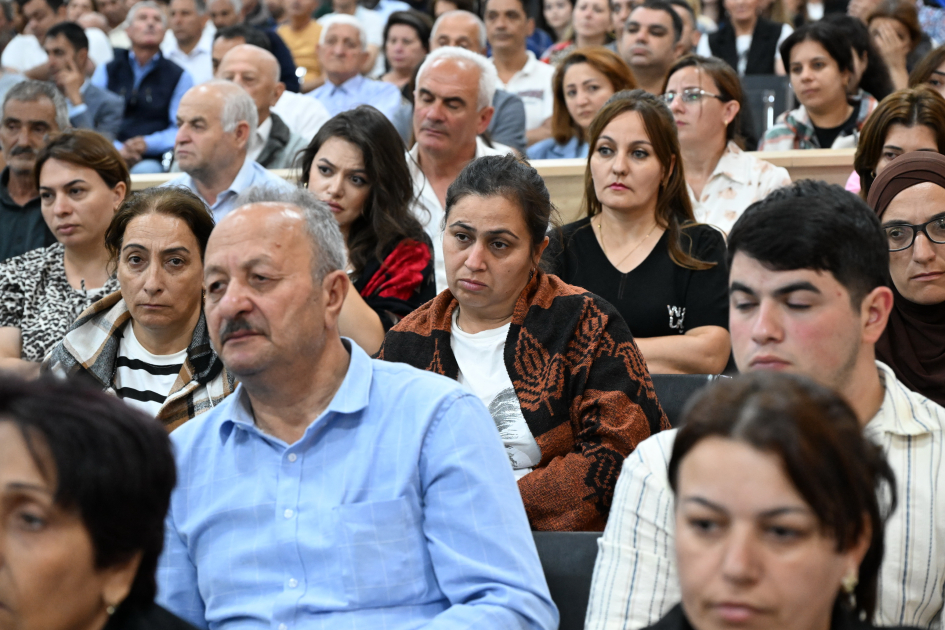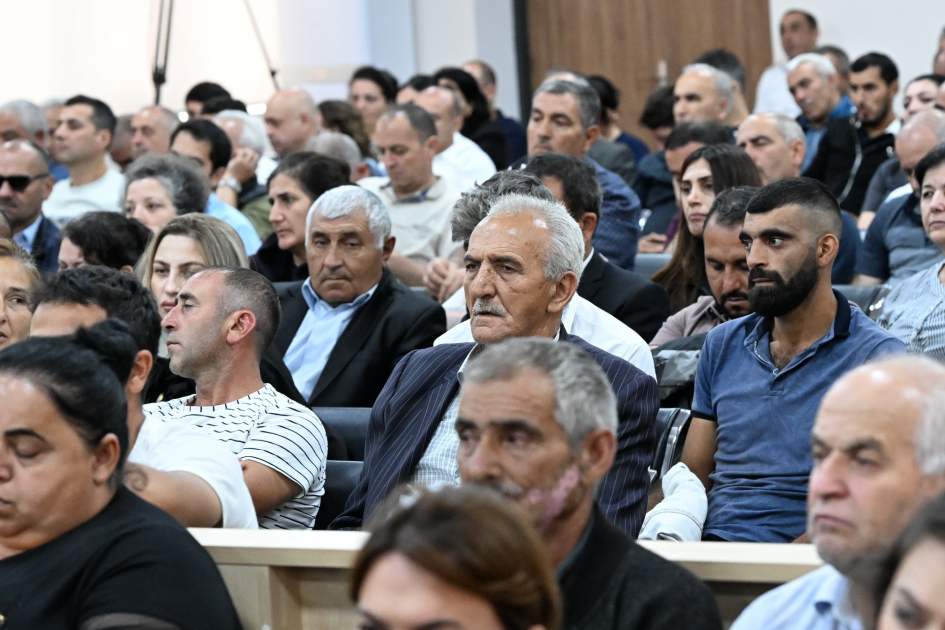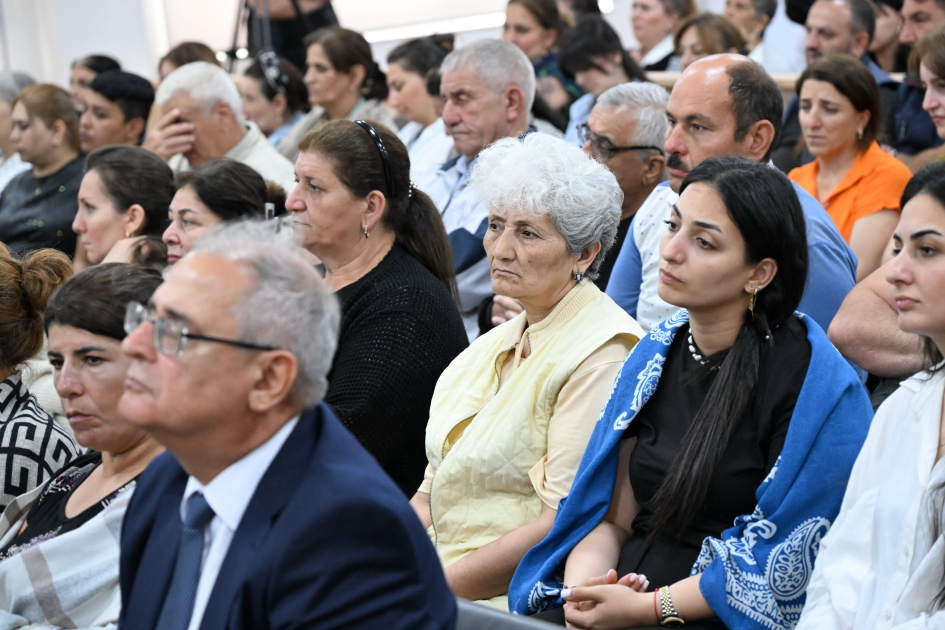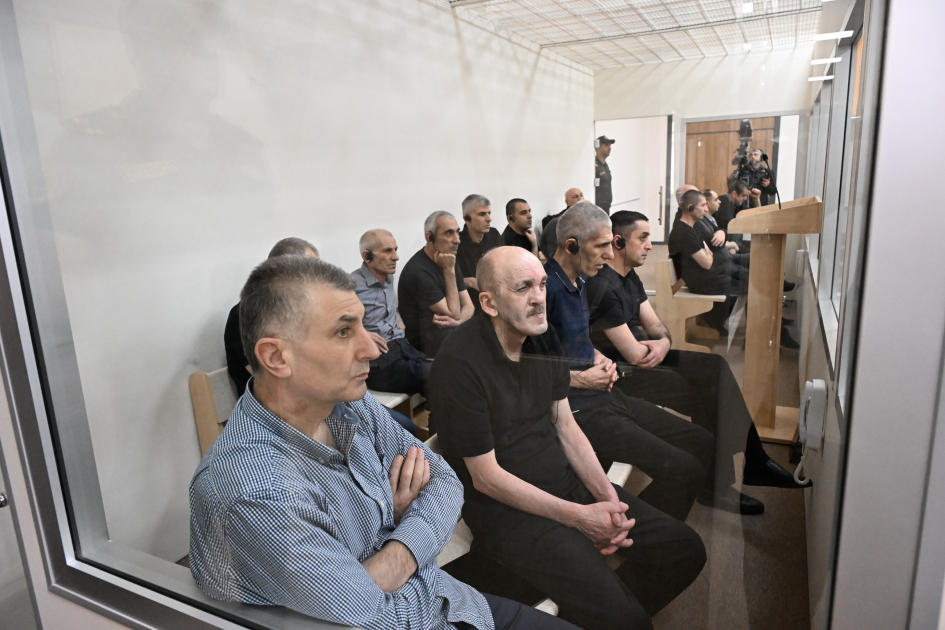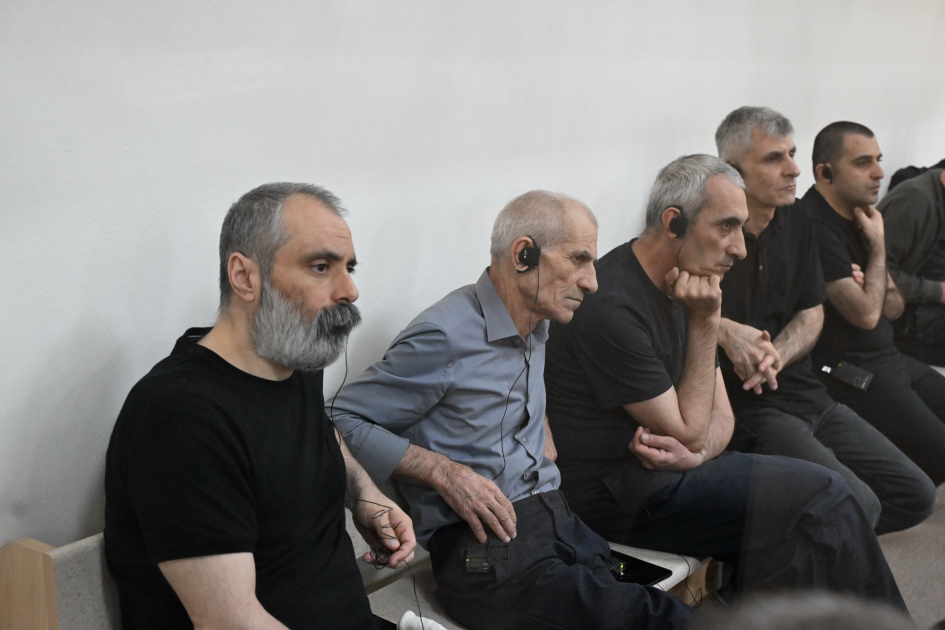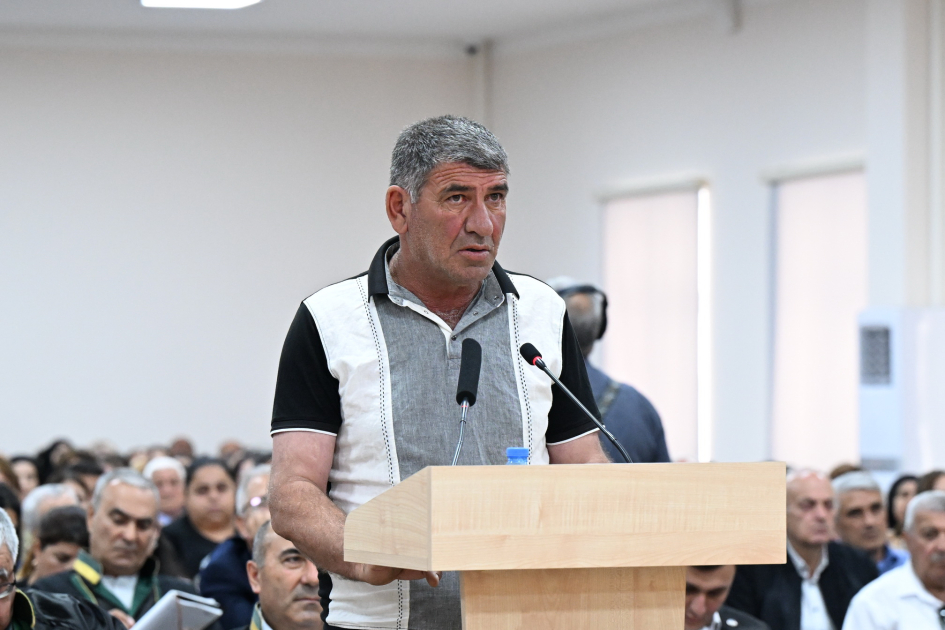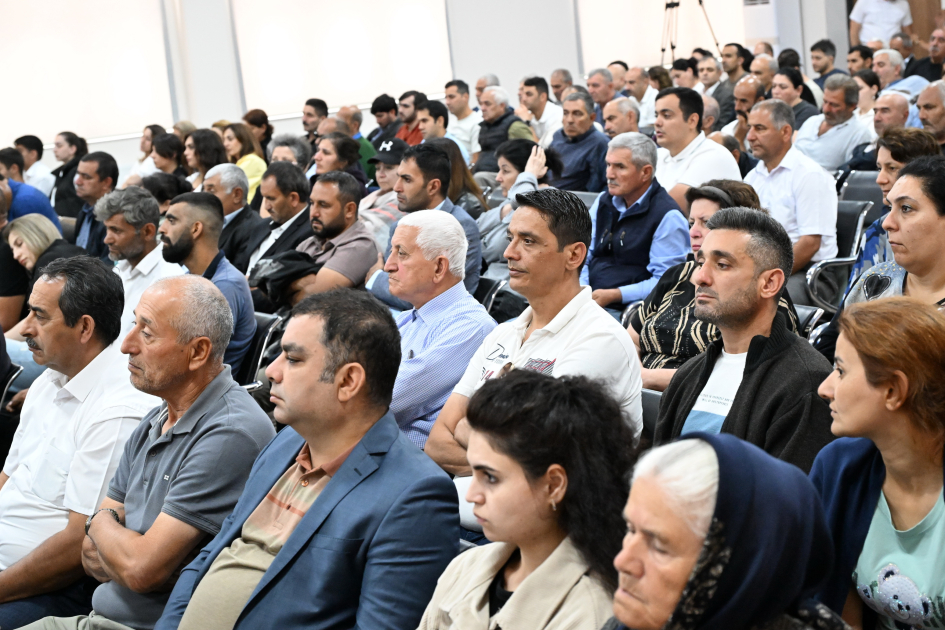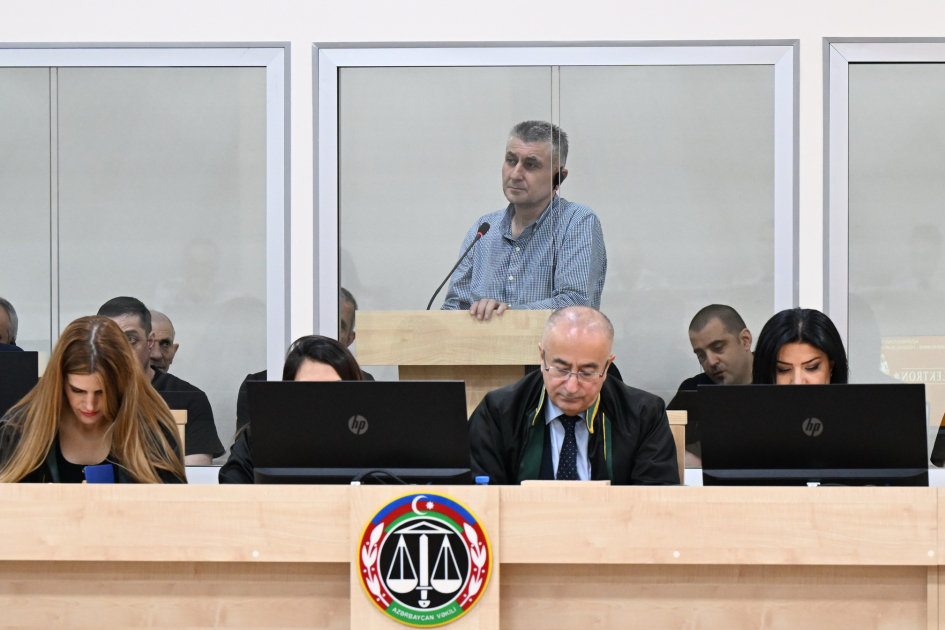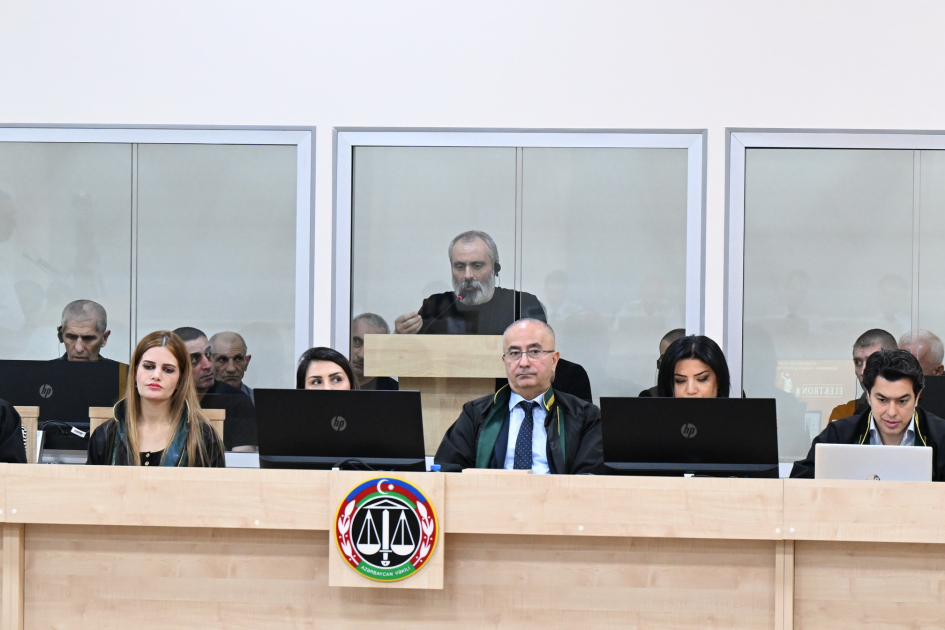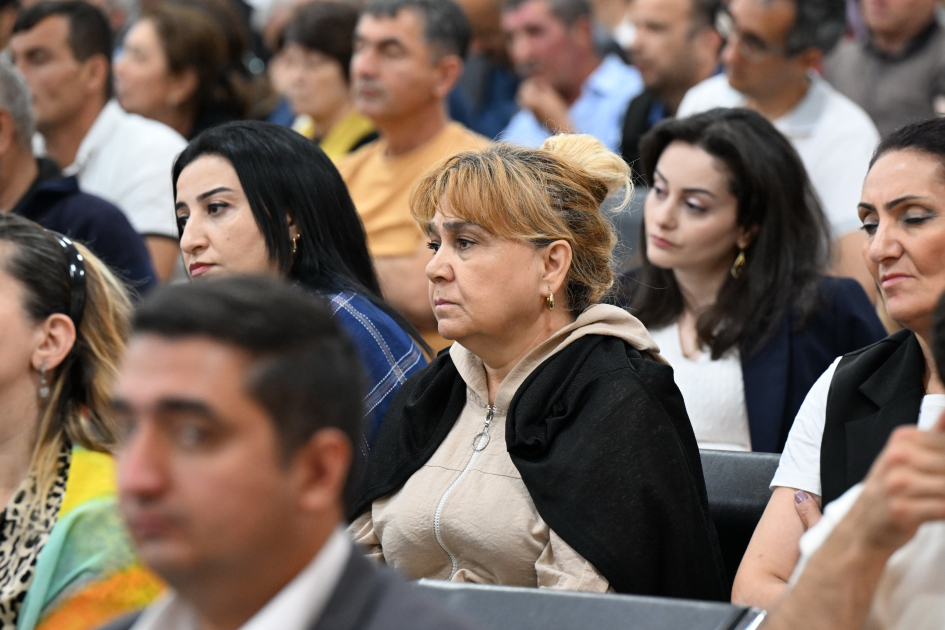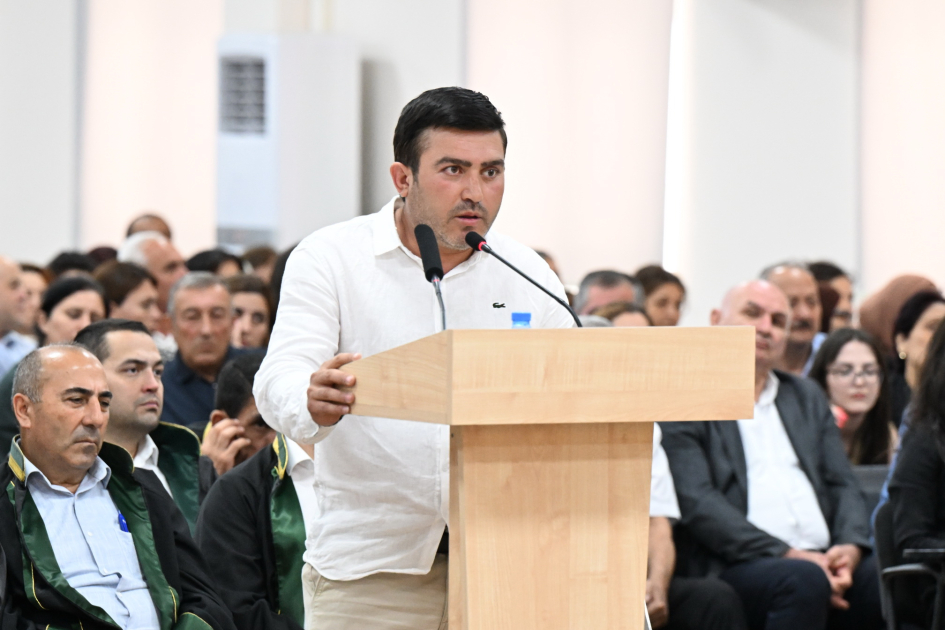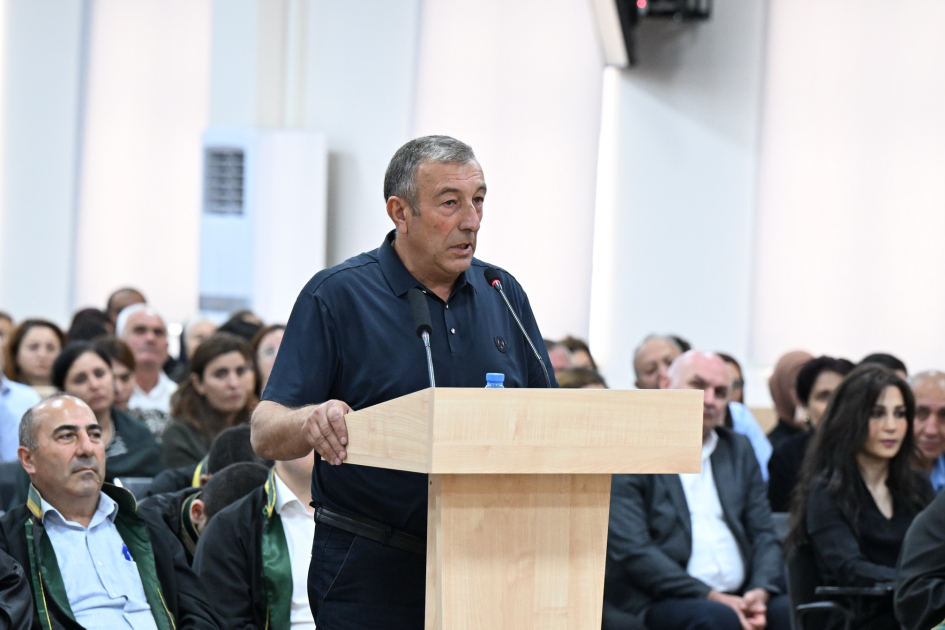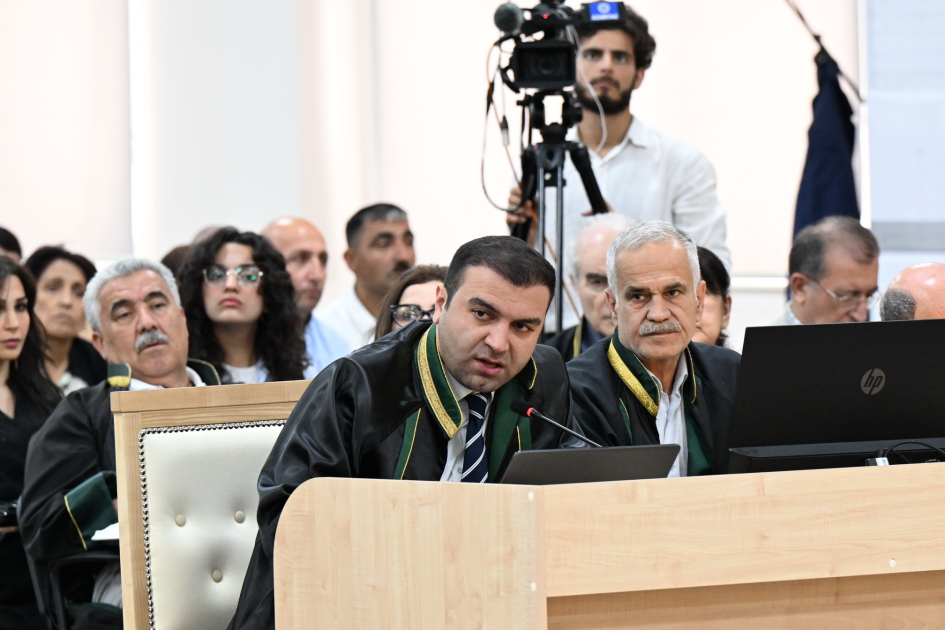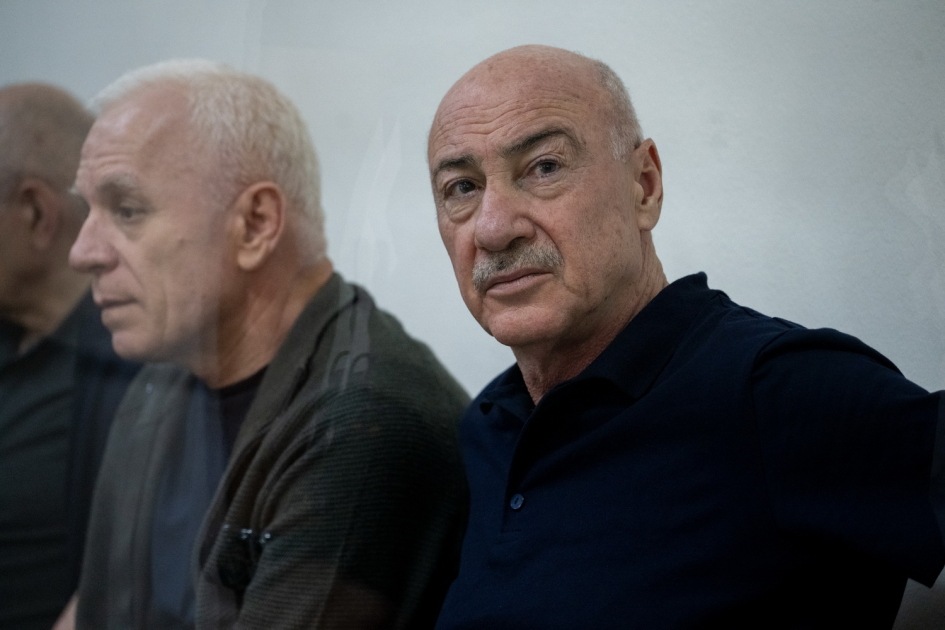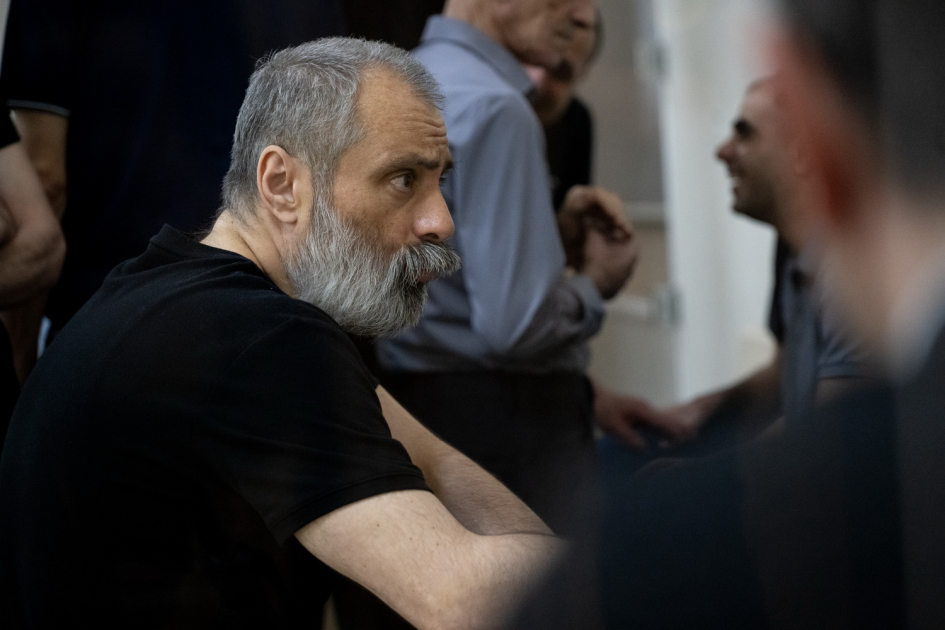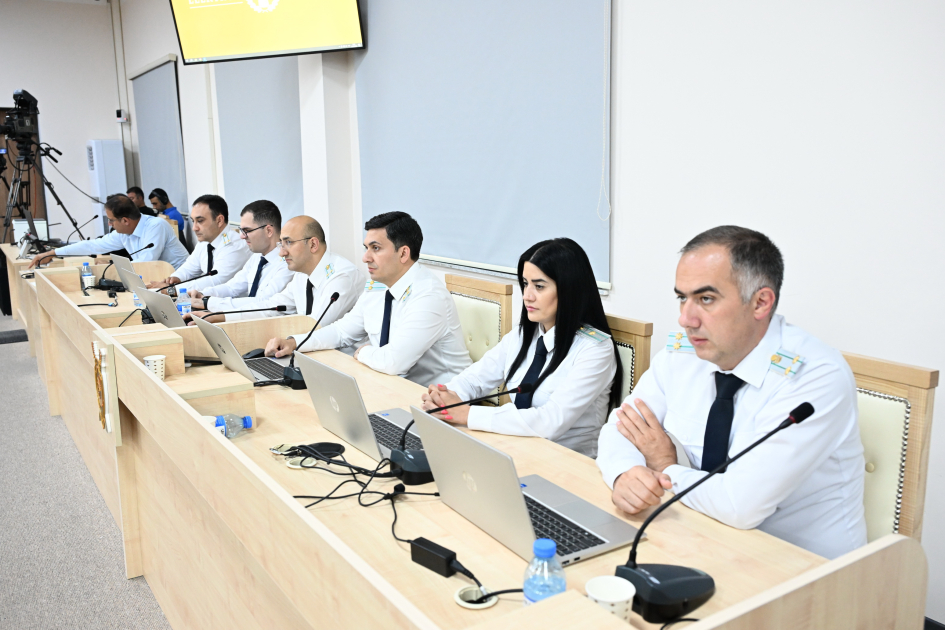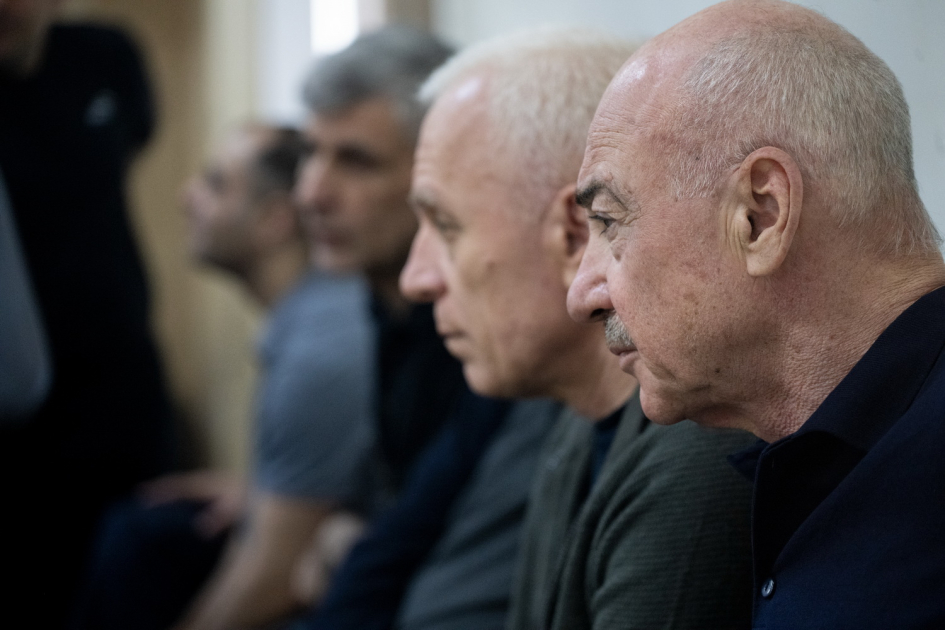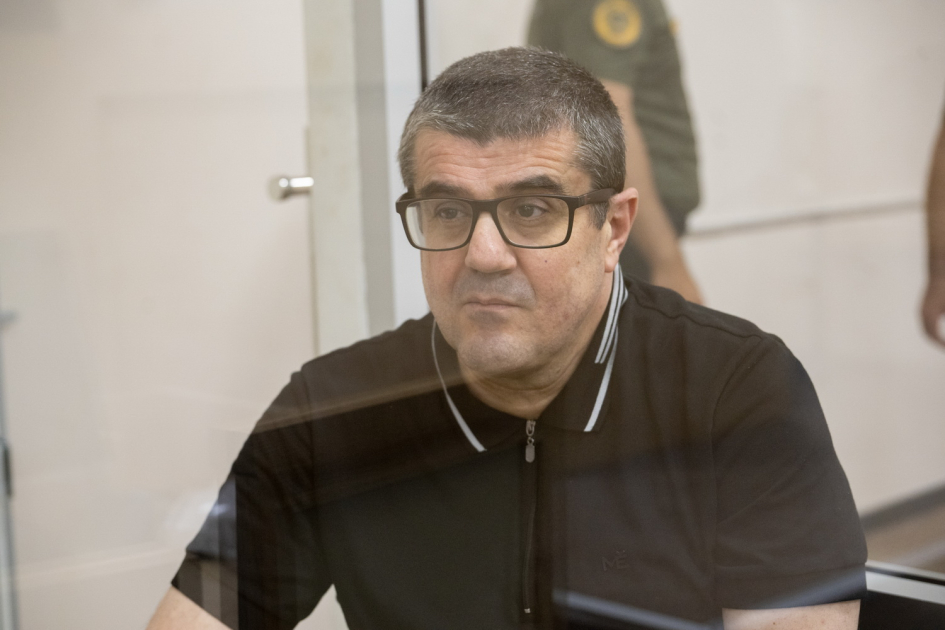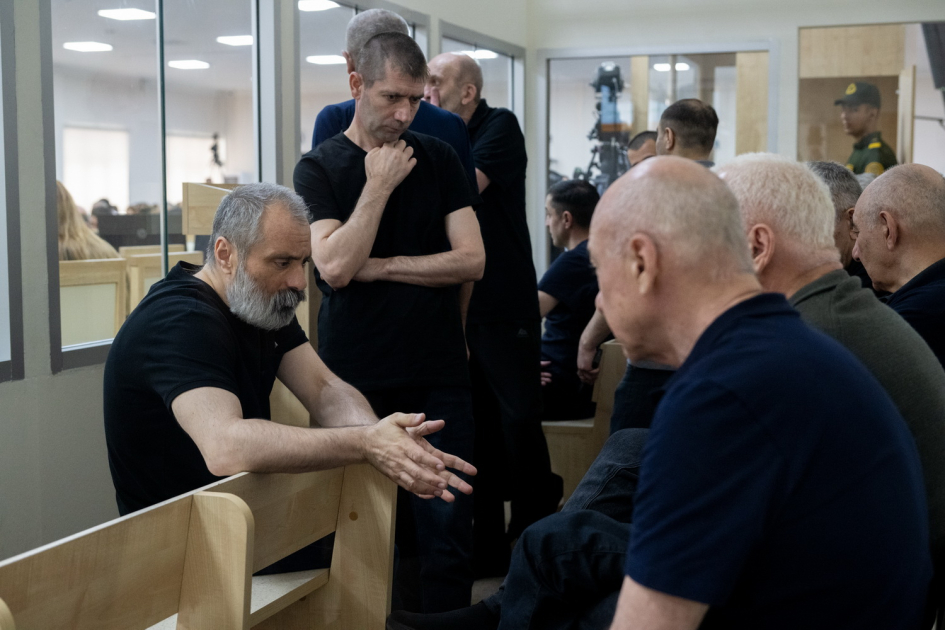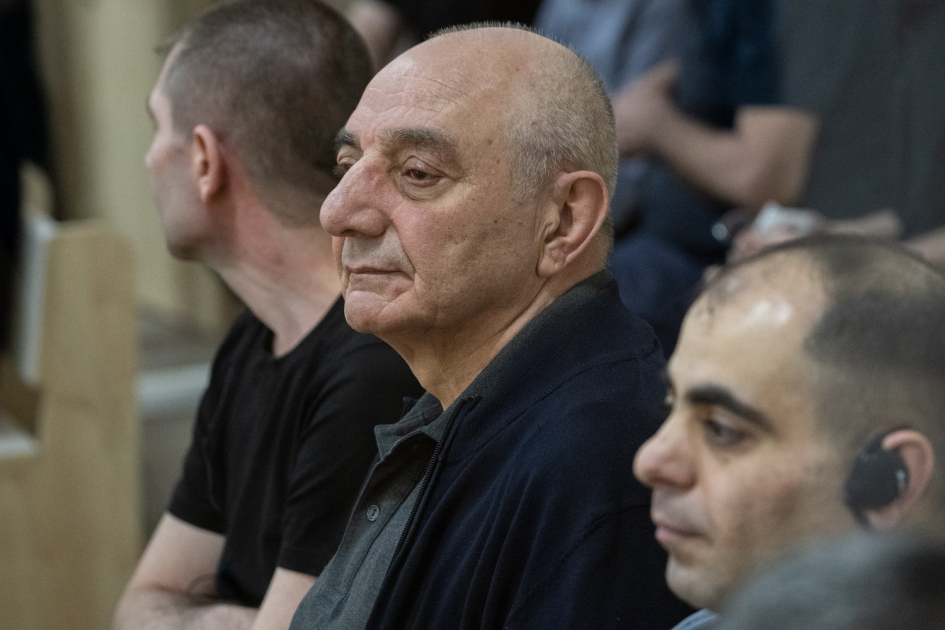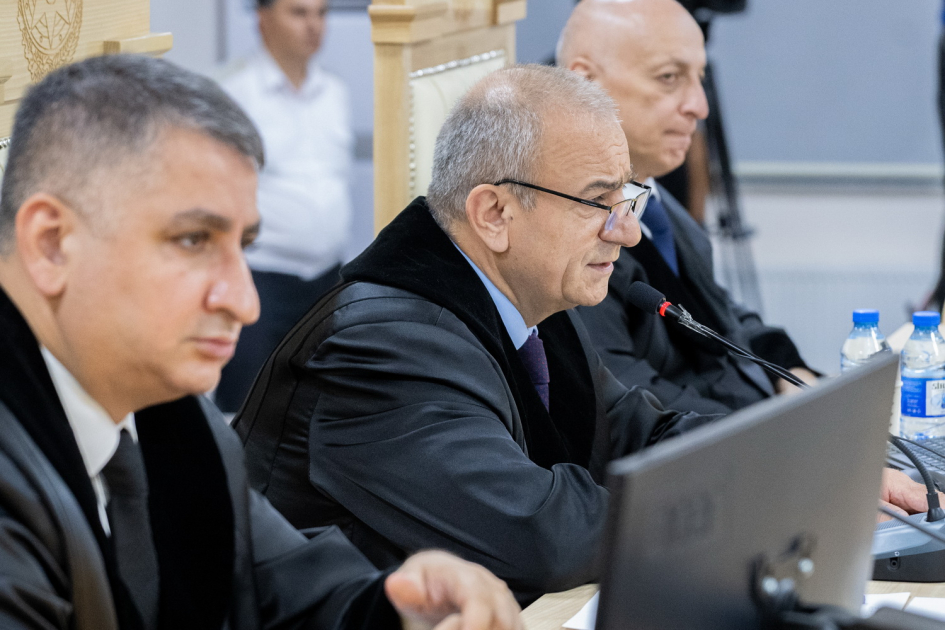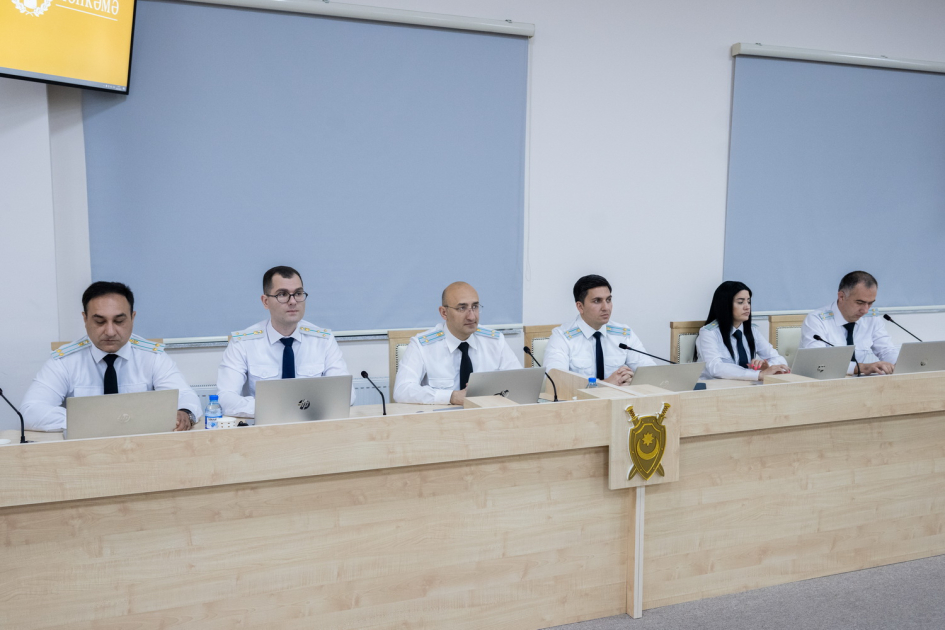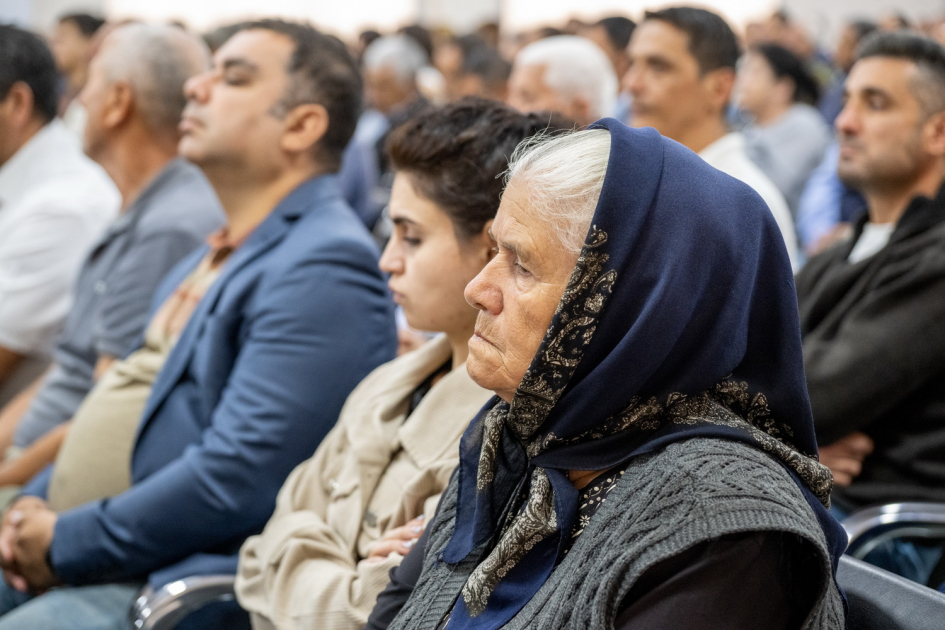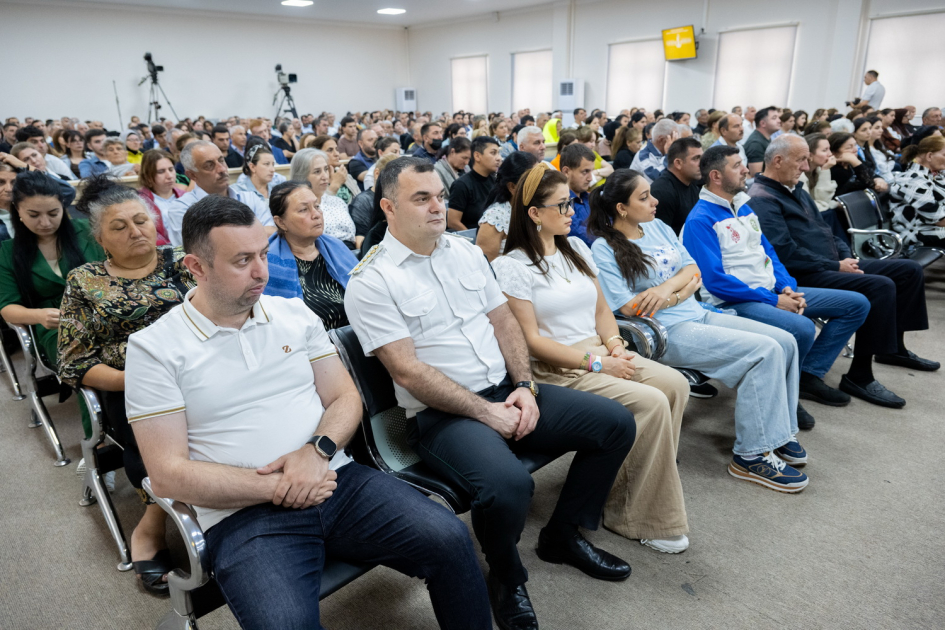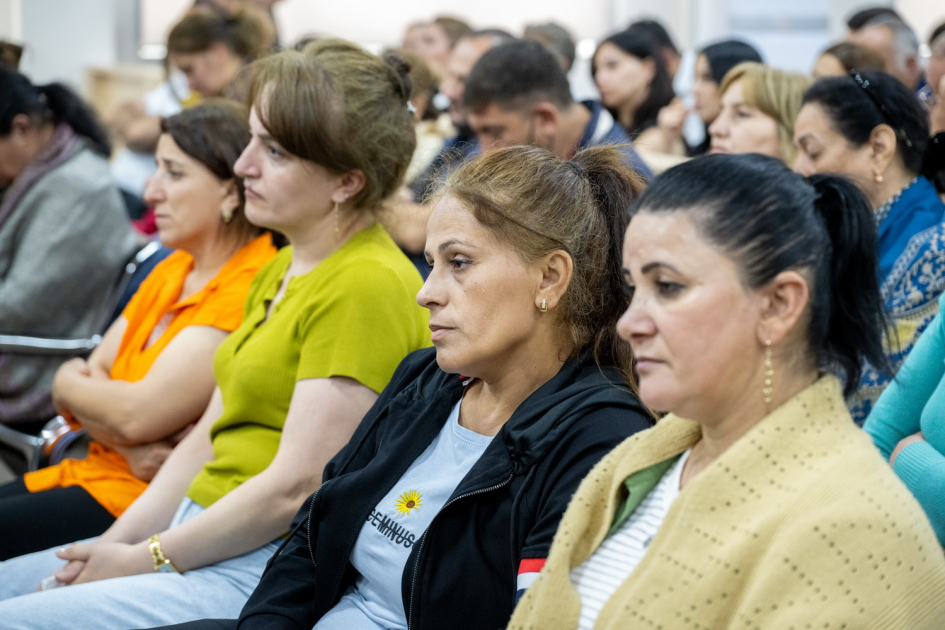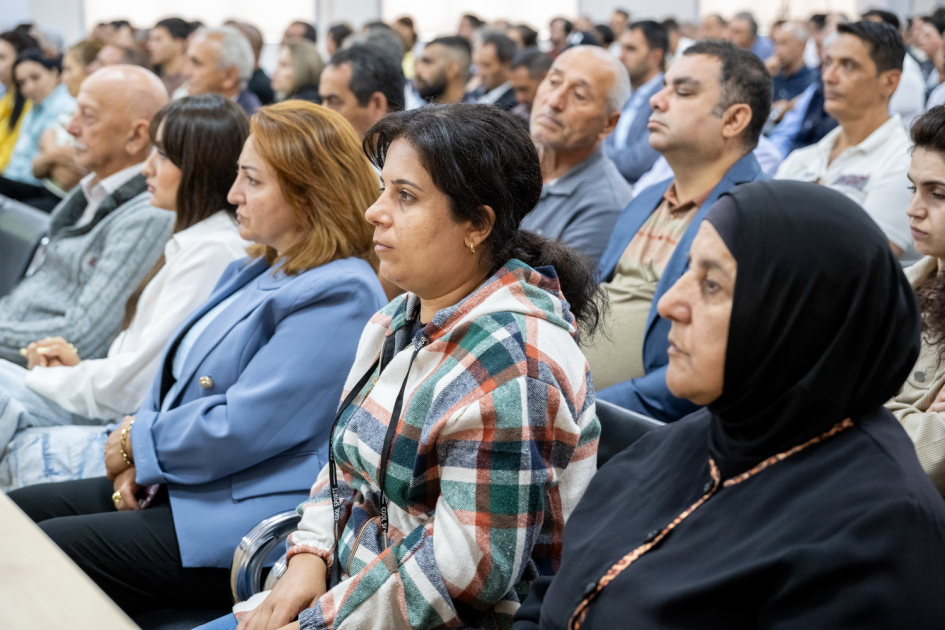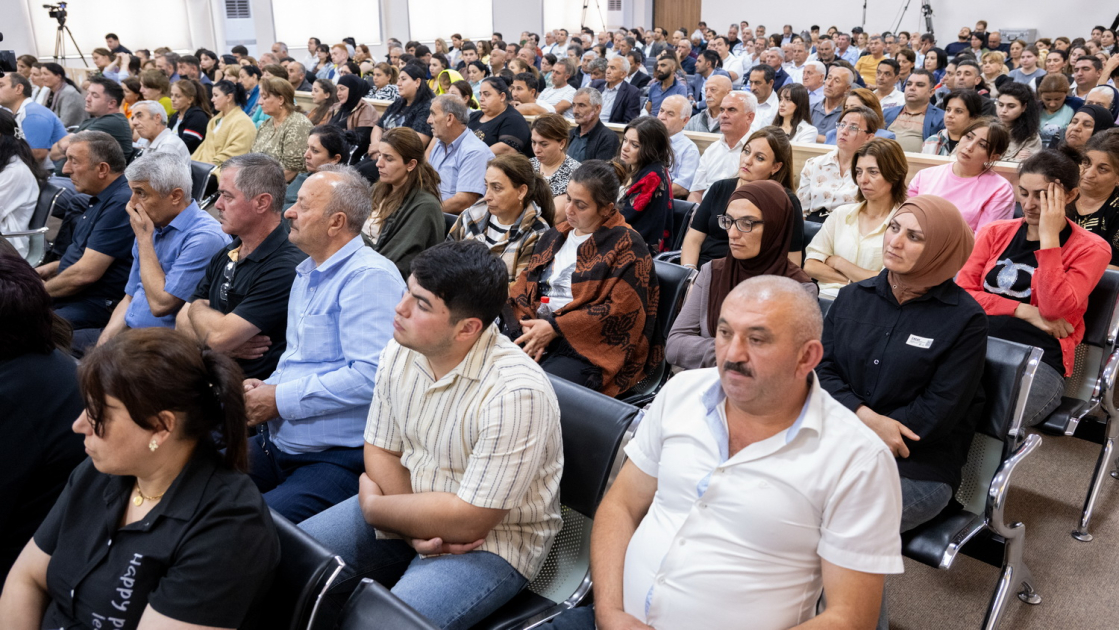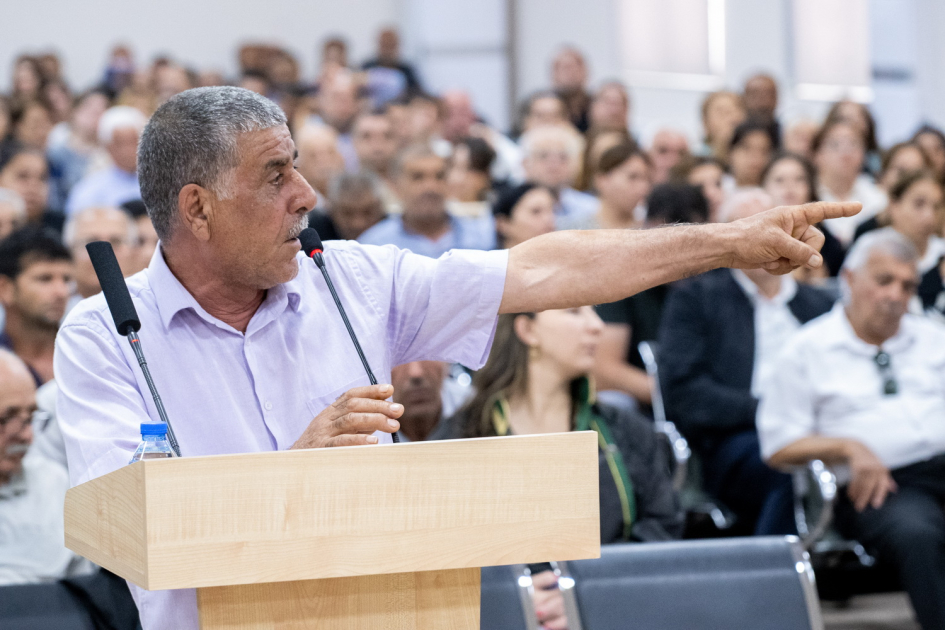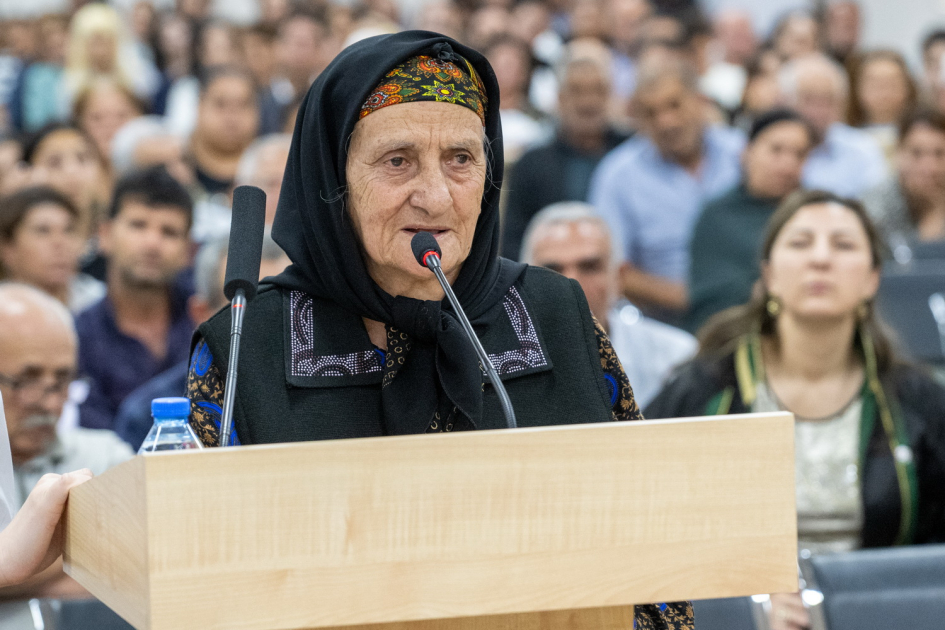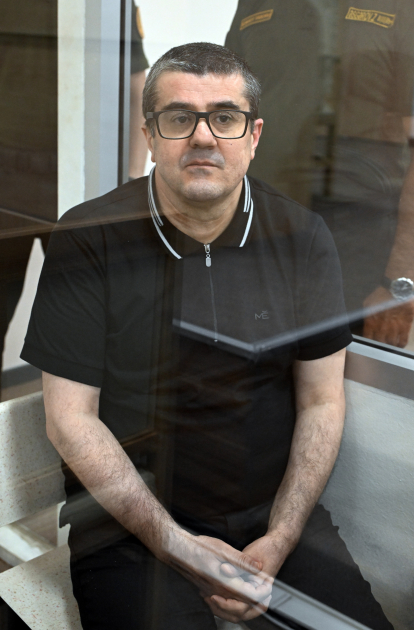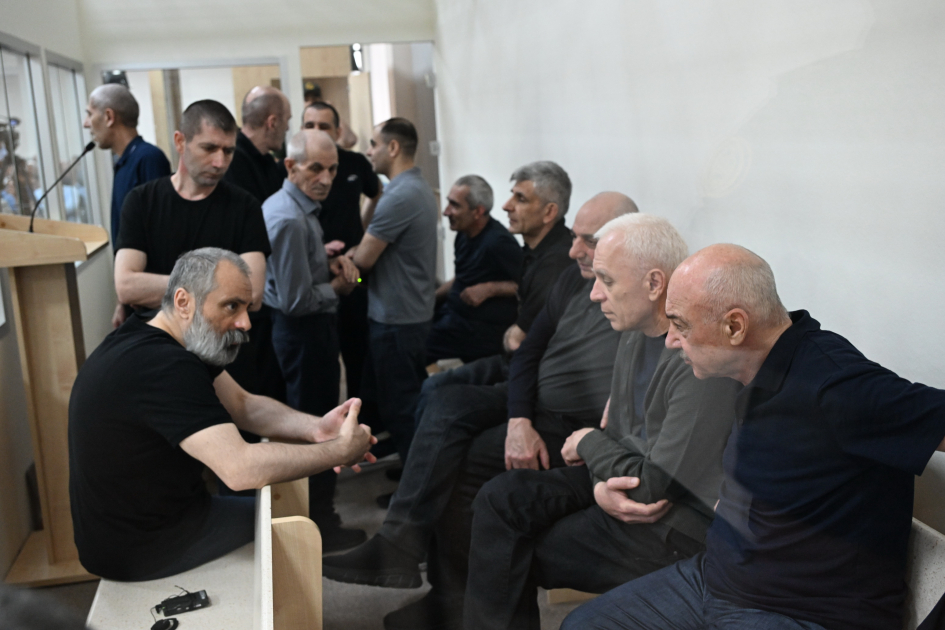BAKU, Azerbaijan, July 7. On July 7, open court proceedings continued at the Baku Military Court in the case against citizens of the Republic of Armenia - Arayik Harutyunyan, Arkadi Ghukasyan, Bako Sahakyan, Davit Ishkhanyan, David Babayan, Levon Mnatsakanyan, and others - charged with crimes against peace and humanity, war crimes, including planning and waging aggressive war, genocide, violations of the laws and customs of war, terrorism, financing terrorism, forcible seizure and retention of power, and other serious offenses resulting from Armenia’s military aggression against Azerbaijan, Trend reports.
The trial, presided over by Judge Zeynal Aghayev with Judges Jamal Ramazanov and Anar Rzayev (reserve Judge Gunel Samadova), ensured that each accused was provided with a translator in their preferred language and with legal defense.
The accused, their defense counsel, victims, legal heirs, representatives, and prosecutors defending the state’s charges were present at the session. Judge Zeynal Aghayev introduced the court panel, prosecutors, translators, and other participants to victims appearing in court for the first time, explaining their legal rights and obligations.
During the proceedings, victims who had been taken hostage, lost property, or suffered other damages due to the Armenian armed forces’ occupation of Azerbaijani territories testified in court.
Guloghlan Amirkhanov, from Garadaghli village in Khojavend, testified that on February 17, 1992, during the village’s occupation, he was taken hostage by Armenian forces and brought to Aghkend. Responding to prosecutor Vusal Abdullayev, he described enduring torture for 65 days, including beatings, tooth extractions, and attacks with a dog. He was released on April 21 and later learned his mother and relatives were also taken hostage. Amirkhanov recalled the mass killing of Garadaghli residents at “Beylik Baghi,” where he was forced to attempt to exhume bodies buried deeply. He managed to recover the bodies of three Azerbaijanis killed by Armenians nearby.
Elshan Shirinov, also from Garadaghli, testified that on February 17, 1992, he was taken hostage with other villagers. Women and elderly men were placed in one KamAZ truck, while younger men, including Shirinov, were loaded into another and taken toward Khankendi. His mother was injured during the events. “I wanted to go with her, but they kicked me and forced me into another truck,” he said. At “Beylik Baghi,” Armenian forces shot over 20 Azerbaijanis after killing two villagers beaten with wood. In Khankendi prison, Shirinov received one piece of bread daily for 12 people and endured daily torture. He was later held in a basement in Khojavend. Responding to prosecutor Tarana Mammadova, he confirmed lasting injuries to his knee and body from the torture.
Ali Ismayilov, originally from Western Azerbaijan, testified that he was displaced in 1988 due to Armenia’s ethnic cleansing policy, first settling in Shusha, then Khojaly. During the Khojaly genocide on February 25–26, 1992, his relatives were killed and buried in Aghdam’s Uzundara cemetery, which was later occupied, and a road was built over the graves. Responding to prosecutor Nasir Bayramov, he confirmed that his brother Nadir Ismayilov and sister Nargiz Ismayilova perished in the genocide.
Elkhan Jabbarov stated that his family moved from Khojaly to the Ergi settlement in Aghdam in late January 1992. He later learned that on February 25–26, 1992, Armenian forces and Khankendi’s 366th Motorized Rifle Regiment attacked Khojaly with tanks and other equipment, killing civilians, including children, women, and the elderly, and burning the city. Responding to senior prosecutor assistant Vusal Aliyev, he confirmed that his cousin Raya Orujova, her young daughter Khayala Orujova, and her husband Telman Orujov were killed by Armenians during the genocide.
Kamil Bayramov testified that on March 11, 1991, his father, Jallad Bayramov, and others were killed by Armenian aggressors in a bus on the Aghdam-Askaran road while delivering food and aid to Kosalar village, leaving him and his three siblings orphaned. He witnessed Khojaly burning on February 26, 1992, and was forced to flee Kosalar on May 7, 1992, due to its encirclement by Armenians.
Ramiz Gahramanov stated that on December 15, 1991, Armenians, using equipment from Khankendi’s 366th Motorized Rifle Regiment, attacked Jamilli village, killing two people. Residents fled via mountain paths toward Kosalar, and 591 people from 120 families in Jamilli became internally displaced. Thirteen villagers, including six-year-old Maya Abdullayeva, were killed, as confirmed in response to prosecutor Fuad Musayev.
Dargah Hagverdiyev, from Karkijahan, testified about ethnic discrimination against Azerbaijanis, noting Robert Kocharian’s active role. From February 1988, Armenians openly expelled Azerbaijanis, burning their homes in Khankendi by September. Responding to prosecutor Tugay Rahimli, he described an attack on Karkijahan following a rally in Khankendi, where several homes were burned. From 1991, the 366th Regiment’s weapons were used to shell Karkijahan, and on December 28, the settlement was occupied, with all Azerbaijani homes burned. “Before the occupation, they called to insult us, saying, ‘Leave, Karabakh must join Armenia, only Armenians should live here,’” he said. The population fled via forest paths to Shusha. Karkijahan had 1,796 residents and 350 Azerbaijani homes before the occupation.
Sirajaddin Mardaliyev testified that in 1992, his mother took him to Aghdam due to attacks on Khojaly. During the Khojaly genocide on February 25–26, his parents were taken hostage with other residents.
Shukur Shukurov, taken hostage on August 17, 1993, in Suleymanli village, Jabrayil, while retrieving his brother-in-law Muzaffar Rustamov’s body, was held for 23 months and 8 days in Hadrut, Khankendi, and Shusha prison. He endured torture, resulting in a broken cheekbone, jaw, and nose. He named tormentors Mikhail Balasanyan and Elmira Agayan.
Iman Guliyev testified that on December 1, 1989, while returning from collecting hay, he was beaten and taken to Armenia’s Gafan district, where his money was seized, and he faced torture.
Abulfat Gasimov, wounded in fighting in Ashagi Abdurrahmanli, Fuzuli, on January 12, 1994, was captured and tortured in Khankendi’s detention facility by individuals named Artur, Armen Samo, Maksim, and Misha, using rubber batons, fists, kicks, and metal bars. He escaped with Khalil Hajiyev to the village of Garvand, Aghdam district.
Habib Kazimov, a soldier in Gubadli, was wounded and captured on September 3, 1993, in Aliguluushagi village. Held in Khojavend, Shusha prison, and Khankendi, he was tortured and, after a severe beating in mid-March 1995, was treated in Khankendi’s children’s hospital until his release on May 8, 1995. He named tormentors including Gor, Vrej, Artur, Lyosha, Lyokha, Roba, Vanya, Kamo, Samvel, and Misha, noting harsher treatment for being from Sumgayit: “They said, ‘He’s a Turk, beat him.’”
Bayram Rustamov, taken hostage with Mehman Aliyev in Garaghaj village, Gubadli, on August 30, 1993, was held for one year and five months in the 366th Regiment’s basement in Khankendi, then Shusha prison, and Aghbulag village in Khojavend. Armenians forced them to dismantle buildings in occupied Aghdam and transport materials to Khankendi. He escaped with Gadir and Vugar through a forest to Afatli village in Aghdam in October 1995.
Javidan Gasimov testified that on January 29, 2021, he and soldier Aydin Gulmaliyev were captured by Armenian forces in Lachin due to fog disorienting them. Taken to Yerevan, they were held in separate rooms, insulted and beaten. They were handed over to Azerbaijan in Shusha on January 31.
Alizamin Garashov, from Hamzali village, was taken hostage at 13 on September 30, 1993, after his family fled. Held in Khojavend and Khankendi, he was tortured, suffering a broken rib and a head injury from a key. He was released on October 6, 1994.
Husniyya Ibrahimova testified that on March 1, 1990, she, her husband Rustam Ibrahimov, and their 12-year-old son Abbas were ambushed by over 20 armed Armenians near “Pocht” in Ijevan, Armenia, while traveling from Boyuk Marza, Basarkechar. Taken to a basement in Yerevan, they endured daily beatings with rifle butts, metal objects, and fists, and had molten plastic dripped on them. Her arm was broken, her husband’s skull was crushed, and Abbas collapsed. A gang member, “Joni,” slit the throat of a 20-year-old Azerbaijani from Aghdara, drinking his blood and saying, “This is how we’ll drink Turks’ blood.” They were released on March 8.
Jumshud Aliyev, wounded in Fuzuli in 1992, was captured and held in Khojavend and Garakend, where he was tortured daily for 10 days.
Yavar Najafov, from Lachin, was taken hostage on May 17, 1992, while visiting his parents and held in Gorus Police Department’s basement until June 13.
Victims also answered questions from the accused, their counsel, and their representatives.
The court also announced the results of the forensic medical examinations of the victims.
The trial is scheduled to continue on July 10.
Fifteen defendants of Armenian origin are accused in the criminal case concerning numerous crimes committed during the aggressive war waged by the Armenian state—including the aforementioned criminal association—on the territory of Azerbaijan, in violation of domestic and international legal norms. These crimes were committed for the purpose of military aggression against Azerbaijan and were carried out under the direct leadership and participation of the Armenian state, officials of its state institutions, its armed forces, and illegal armed formations, through their written and verbal orders, instructions, and guidelines; material, technical, and personnel support; centralized management; as well as under strict control and under the leadership and direct or indirect participation of Robert Sedraki Kocharyan, Serzh Azati Sargsyan, Vazgen Mikaeli Manukyan, Vazgen Zaveni Sargsyan, Samvel Andraniki Babayan, Vitali Mikaeli Balasanyan, Zori Hayki Balayan, Seyran Musheghi Ohanyan, Arshavir Surenovich Garamyan, Monte Charles Melkonyan, and others.
The following individuals—Arayik Vladimiri Harutyunyan, Arkadi Arshaviri Ghukasyan, Bako Sahaki Sahakyan, Davit Rubeni Ishkhanyan, David Azatini Manukyan, Davit Klimi Babayan, Levon Henrikovich Mnatsakanyan, Vasili Ivani Beglaryan, Erik Roberti Ghazaryan, Davit Nelsoni Allahverdiyan, Gurgen Homeri Stepanyan, Levon Romiki Balayan, Madat Arakelovich Babayan, Garik Grigori Martirosyan, and Melikset Vladimiri Pashayan—are being charged under the following articles of the Criminal Code of the Republic of Azerbaijan: Article 100 (planning, preparing, initiating, and waging a war of aggression); Article 102 (attacking persons or organizations enjoying international protection); Article 103 (genocide); Article 105 (extermination of the population); Article 106 (enslavement); Article 107 (deportation or forced displacement of population); Article 109 (persecution); Article 110 (enforced disappearance of persons); Article 112 (deprivation of liberty contrary to international law); Article 113 (torture); Article 114 (mercenary service); Article 115 (violation of the laws and customs of warfare); Article 116 (violation of international humanitarian law during armed conflict); Article 118 (military robbery); Article 120 (intentional murder); Article 192 (illegal entrepreneurship); Article 214 (terrorism); Article 214-1 (financing terrorism); Article 218 (creation of a criminal organization); Article 228 (illegal acquisition, transfer, sale, storage, transportation, and possession of weapons, ammunition, explosives, and devices); Article 270-1 (acts threatening aviation security); Article 277 (assassination of a state official or public figure); Article 278 (forcible seizure and retention of power, forcible change of the constitutional structure of the state); Article 279 (creation of armed groups not provided for by law); and other articles.

